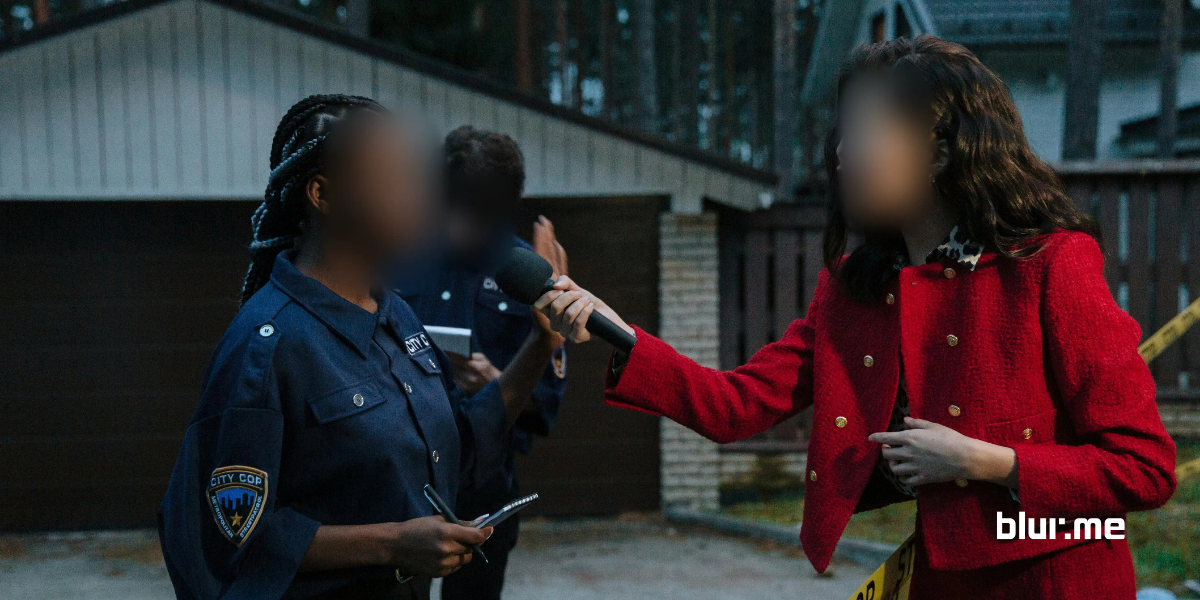When you see black boxes hiding text in a document, you’re likely looking at redacted information but what does redacted actually mean?
In simple terms, “redact” means to edit a document by removing or obscuring sensitive content. This process protects private, confidential, or legally restricted data from being publicly visible. Redaction is most commonly seen in legal documents, court filings, police reports, real estate contracts, and even bank statements.
Let’s break down the full redaction meaning, including where and how redaction is used and how to redact files properly, both for legal and personal privacy.
Define Redacted: What Does Redacted Mean?
The definition of redacted in modern usage refers to the intentional removal or concealment of sensitive text or images from a document or file before it's published or shared.
Redaction often involves:
- Blacking out sections of text
- Blurring names or numbers
- Obscuring visual elements in a file, image, or video
Whether it’s a government report or a personal ID, redacted documents are used to ensure that only approved information is visible to the reader.
What Is Redacted in a Document?
A redacted document is any file where specific content has been hidden to protect sensitive details. Common examples include:
- Personal info: Names, phone numbers, addresses, ID numbers
- Financial data: Credit card numbers, account balances, salary info
- Legal case details: Witness names, sealed evidence, confidential notes
- Security-related info: National security items, classified data
For instance, a redacted police report might remove the victim’s name or personal address. Similarly, a redacted bank statement could hide account numbers before submission to a court or real estate agent.
If you're wondering what is it called when you black out information in a document? It's redaction.
What Does Redacted Mean in Court and Legal Settings?
In legal contexts, redaction ensures attorney-client privilege, witness protection, or compliance with data privacy laws.
Examples:
- In court filings, redacted statements might protect sensitive witness identities.
- In real estate, documents may be redacted before public record filing to protect a buyer’s financial info.
- In law enforcement, redacted police reports keep minors or victims anonymous.
So, what needs to be redacted in legal documents? Anything confidential—names, case numbers, proprietary evidence must be hidden to prevent privacy violations or legal breaches.
Looking to redact your own legal or financial files? BlurMe offers best PDF redaction software for easy, secure document editing directly in your browser.
Not Redacted vs. Redacted: What’s the Difference?
- Redacted means that part of the information is hidden or obscured.
- Unredacted or not redacted means that everything is fully visible.
This matters a lot in compliance. Sharing unredacted documents with personal information (like health data or bank records) can lead to data breaches or lawsuits.
If you’re working with multimedia evidence, BlurMe also offers video redaction software that can blur out faces, license plates, or documents shown in video clips, perfect for court submissions or content moderation.
What Is Redacted Information?
Redacted information is any portion of a file or text that has been deliberately hidden. It's common in:
- PDFs and scanned documents
- Video evidence or police bodycam footage
- Screenshots of private conversations
- Social media posts
For image-based content, tools like BlurMe let you blur face in photos, black out names, or hide sensitive areas for data redaction.
Whether you’re anonymizing a photo or protecting a private statement, blurring and redacting are key techniques for digital privacy.
Redacted Document Example: How It Looks
Here’s what a redacted document example typically looks like:
Before Redaction:
John Doe, residing at 123 Main St., New York, NY, made a payment of $4,500 on May 3, 2025.
After Redaction:
[REDACTED], residing at [REDACTED], made a payment of [REDACTED] on May 3, 2025.
This example shows why redaction is used—to prevent exposing names, addresses, or financial data.
What Does It Mean to Redact a Document?
To redact a document means to manually or automatically hide selected information before distributing it. This can include:
- Text redaction (blacking out words)
- Image redaction (blurring faces or objects)
- Metadata removal (stripping background data)
Tools like BlurMe help automate this process with AI-powered detection, allowing users to blur or block faces, license plates, ID numbers, or any area in a photo, video, or PDF—without downloading any software.
Compliance Regulations & Laws That Require Redaction
Redaction isn't just good practice—it’s often legally required. Various global laws mandate the redaction of personally identifiable information (PII) or sensitive data before documents, videos, or images can be shared or disclosed.
Here are key regulations that require redaction for compliance:
1. GDPR (EU/EEA)
The General Data Protection Regulation requires redacting personal data—like names, addresses, and ID numbers—before sharing files across the EU or online. Non-compliance can lead to major fines. For more information on GDPR see our GDPR checklist.
2. HIPAA (USA)
The Health Insurance Portability and Accountability Act mandates redacting protected health information (PHI) in medical records, forms, or patient files to safeguard privacy.
3. FERPA (USA)
The Family Educational Rights and Privacy Act protects student data. Schools must redact student names, IDs, grades, and disciplinary records before disclosing education records publicly. Failure to do so results in Ferpa violations.
4. FOIA (USA)
The Freedom of Information Act allows public access to government records—but any confidential or identifying details must be redacted to comply with privacy and security guidelines.
5. GLBA (USA)
The Gramm-Leach-Bliley Act applies to financial institutions, requiring the redaction of sensitive client data—such as redacted bank statements—before sharing or filing.
6. Federal Rules of Civil Procedure (FRCP)
In legal proceedings, the FRCP mandates redaction of social security numbers, bank details, and personal addresses from court documents and e-discovery files.
7. Real Estate Law
Real estate contracts and financial disclosures must redact private data—like buyer names or loan info—before public filing or third-party sharing.
Conclusion: Why Redaction Matters
From government transparency to protecting your online privacy, redacting documents is essential in today’s digital world. Whether you're wondering what does redacted mean in law, or simply trying to blur your face online, redaction is your first line of defense.
Ready to take control of your digital privacy?
Use BlurMe’s blur face tool or explore our best video redaction software list to stay secure online.





